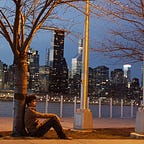1. Plato, Democracy and Nepal
I started writing a few words describing the similarity between governance of Nepal and Plato’s democracy. Before I realized what I was writing, I had written for too long and in too many words. Therefore, I decided to divide it into several parts. This is the first of N parts. Enjoy!
While going through the Book VIII of the Republic by Plato I could not help but notice parallels between Plato’s thought of a democracy and the regimes of present day Nepal.
Plato, one of the greatest philosophers of the western world, devises an ideal city ‘Kallipolis’ and divides the types of regime by the characteristics of the good in the ten volume book. In book VIII, Plato through Socrates in the book explains the transition of regimes from one form to another.
We start with a democracy where the highest common good is liberty, and the rulers are elected by people’s mandate. Ancient Athenian philosophers Socrates and Plato opposed democracy since such a regime was anarchic and depended on the people’s self-interest rather than the common good. The democratic city of Athens sentenced Socrates to a death by hemlock poison for his criticism of democracy.
How can there be parallels between the present day democracy and a democracy that existed two millenniums ago, especially when the regime described by Plato is a rule of the mob? How can a philosopher who died 2367 years ago have a problem with the present day democracy? Well, the highest common good of the regime is still the same: oligarchy has wealth, aristocracy has knowledge, timocracy has courage and democracy has liberty. And we are supposed to believe that Nepal is a democracy?
But Nepal is indeed a democracy, for the highest common good still is liberty. As Socrates says in the book, the effect of democracy is such that the fools influence the masses because they have the right to say whatever they wish to say. Pick an example of popular Nepali fake mastermind Bijay Shahi. Now imagine how many innocent Nepali people were waiting for that memory reinforcement formula of his. I personally know a couple of people who believed him to be true. That is not all, fake photographers taking credit for photos of mountains he never captured. A Prime Minister who has discovered an antidote to coronavirus. A self-professed PhD scholar whose words sound like a kid’s squabble. There have been numerous instances of untamed liberty resulting in misinformation and delusion in the masses.
In addition, the asses and apes are left with the utmost freedom and dignity in a democracy, so much dignity that they start hurting everyone they meet or anyone who opposes them. The spirit of liberty is such that while it empowers the disadvantaged group, it also places a protective layer for the group that seeks detrimental changes in democracy. Again, a popular example, part-time prodigal golfer, part-time drunk driver Prithvi Malla. The liberty of driving a vehicle under influence provided him such dignity, he killed a pedestrian.
Plato said that people have no respect nor the incentive to join any service in a democracy, because they are sensitive that they will be slaves. Save for a few individuals, most individuals selected for civil service in Nepal are after lucrative salary and benefits. If these wealth incentives were to be brought down to bare minimum, only a few would apply.
These similarities in characteristics of the two regimes are not reasons enough to yet concur that the current government of Nepal could be modeled as Plato’s democracy yet finding these parallels suggests some similarity. Correlation does not necessarily imply causation, therefore, we move forward with the assumption that the current Nepali governance is similar to Plato’s idea of democracy. We will explore more in forthcoming articles, keep reading!
